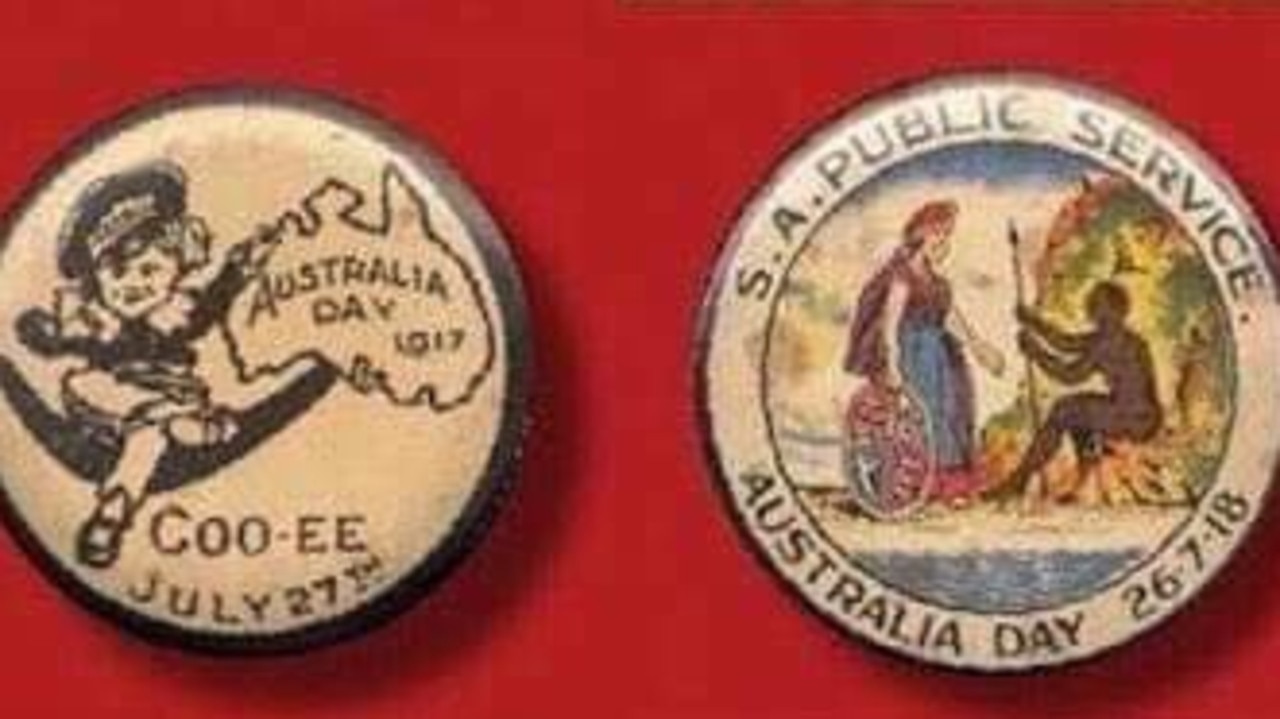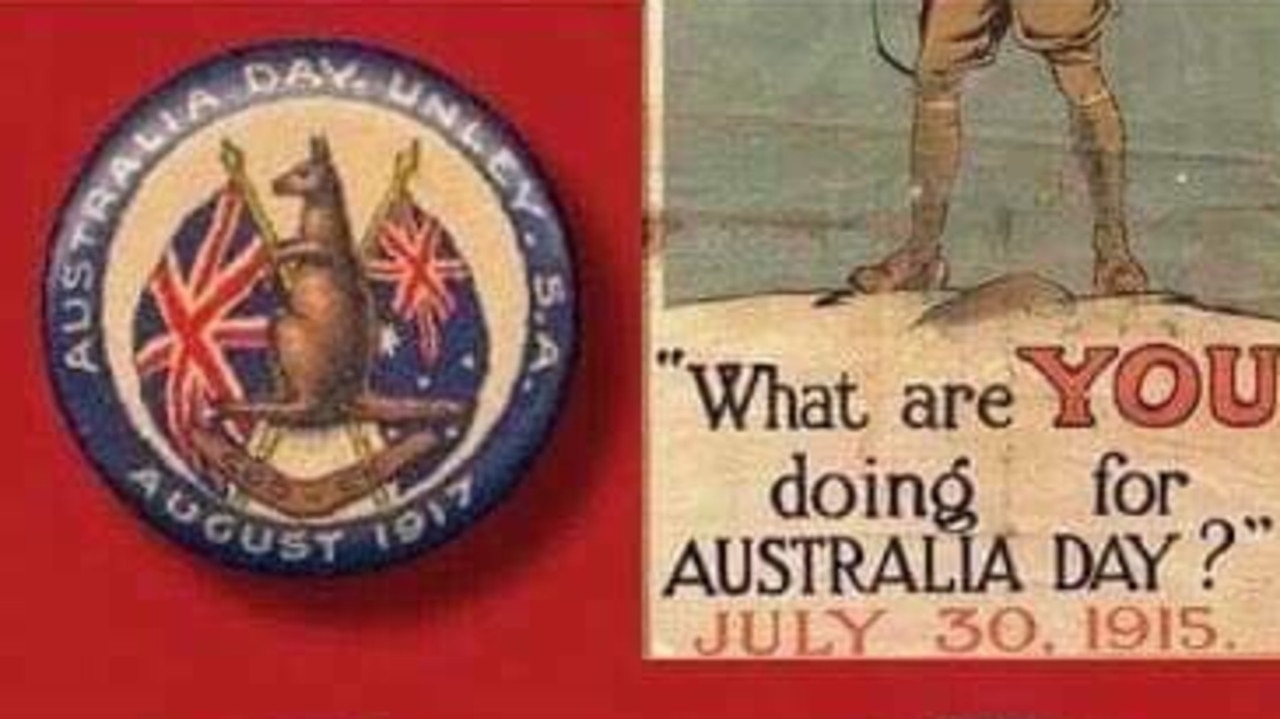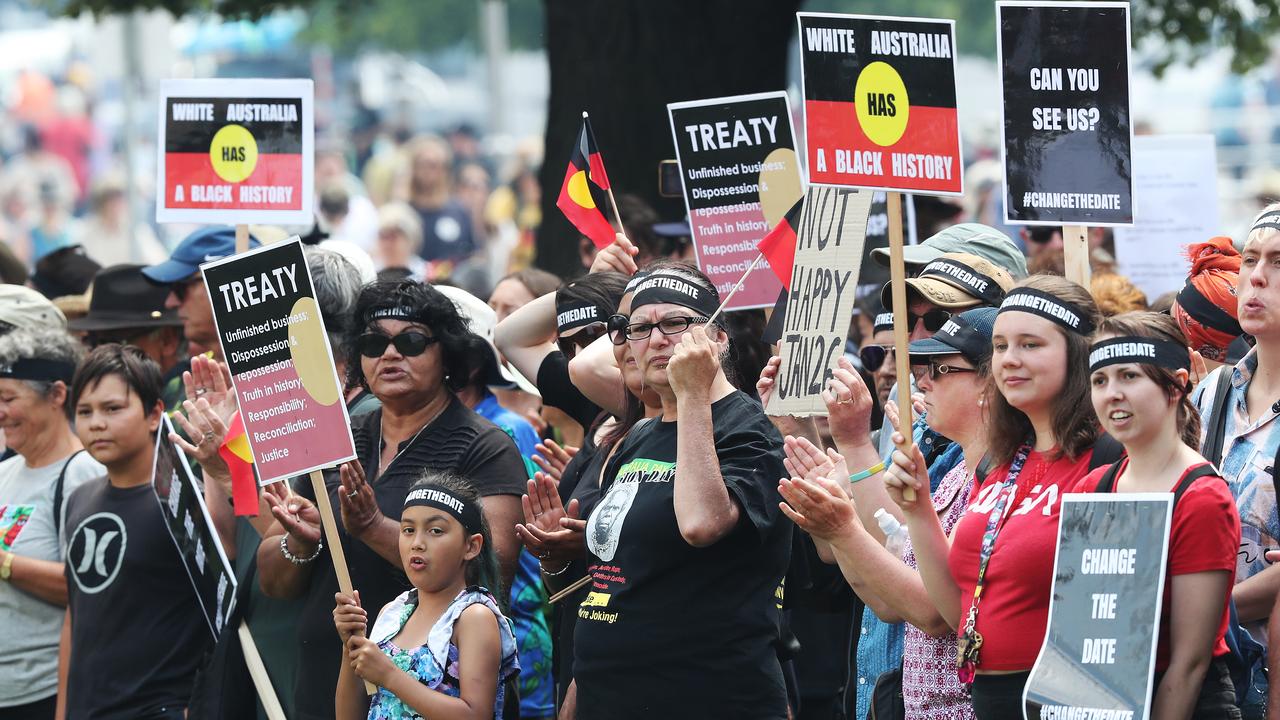Debunking the myth of Australia Day
To many, Australia Day is sacred, but this photo shows the hypocrisy around the date debate and why it’s not what it seems.
Changing Australia Day may seem like an un-Australian thing to do, but not everyone understands why we celebrate January 26.
Deputy Nationals leader Bridget McKenzie illustrated this point when she argued for Australia Day to stay on January 26.
“That is when the course of our nation changed forever. When Captain Cook stepped ashore,” Senator McKenzie told Sky News in 2018.
“And from then on, we’ve built an incredibly successful society, best multicultural society in the world.”
Actually, Australia Day marks the arrival of the First Fleet in January 1788, which was commanded by Captain Arthur Phillip. Captain Cook had been dead for nine years at that point.
There have been calls to change the date, which many indigenous Australians refer to as Invasion Day.
While there’s been a lot of anger about the idea of changing Australia Day, the date hasn’t always been so set in stone.
These days, most people are aware that January 26 commemorates the arrival of the First Fleet. Specifically it was the day commander Captain Arthur Phillip, rowed ashore at Sydney Cove, raised the Union Jack and proclaimed British sovereignty over part of the continent in 1788.
But the naming of Australia Day took almost 150 years and it was not always held on January 26.

University of Melbourne Professor Kate Darian-Smith tracked the evolution of the day in a piece for The Conversation.
She said January 26 was initially referred to as “First Landing Day” or “Foundation Day” and early settlers held anniversary dinners to commemorate the occasion.
One of the biggest early celebrations was in 1818 when Governor Lachlan Macquarie hosted a 30-gun salute to celebrate its 30th anniversary. Later annual regattas on Sydney Harbour become a popular attraction.
But the holiday was still quite a NSW-centric occasion and other states introduced their own holidays.
Tasmania held a Regatta Day in early December that jointly acknowledged the landing of Abel Tasman in 1642 and its separation from New South Wales in 1825.
In Western Australia, Foundation Day on June 1 celebrated the arrival of white settlers in 1829. South Australia’s Proclamation Day was held on December 28.
But the popularity of January 26 did grow and by 1888, “Anniversary Day” as it was then known, was a holiday in all capital cities except Adelaide.
Even at this stage, there were reservations about celebrating this day as many thought NSW’s convict origins were better left in the past. NSW governor Henry Parkes also recognised the day was a reminder to Aborigines of how they had been “robbed”.
So it wasn’t always an obvious choice for Australia’s national day.
After the Commonwealth of Australia was founded in 1901, there was renewed interest in setting a foundational holiday, with the Australian Natives Association trying to find a suitable date.
Empire Day was first introduced on May 24, 1905, to commemorate the late Queen Victoria’s birthday and as recognition of the strength of imperial ties.
The first “Australia Day” was actually held on July 30, 1915, to raise funds for the World War I effort.

It wasn’t until 1935 that all states adopted a common date and name for Australia Day to be held on January 26, although it was celebrated on the nearest Monday so people could have a long weekend, according to the National Australia Day Council.
It took until 1988 for all states and territories to agree on celebrating Australia Day on January 26 but in the years following some still scheduled a public holiday for the nearest Monday.
Finally in 1994, celebrating Australia Day on January 26 was declared a national public holiday and every state and territory declared a public holiday on this date.
“Australia Day has not always been on the 26th of January,” Macquarie University Professor Bronwyn Carlson, an expert in indigenous studies, told news.com.au.
“It has over the past 100 years been celebrated on various days in various months so it is not like a longstanding tradition.”
She said someone made the decision to hold a national celebration on a day that marked the coming of the First Fleet and the dispossession and oppression of indigenous peoples.
“This day does not reflect a day that is worthy of celebration even for those on board the First Fleet who were either British military or prisoners of the crown,” she said.
But while Prof Carlson believes the date is problematic, she did not think it was racist.
“The term ‘racist’ is one that involves a panic and fuels hatred,” she said. “The date is problematic — the date isn’t racist.”
Prof Carlson said the problem was many Australians did not have an understanding of the history behind the date.
“I think people are more concerned with being labelled ‘racist’ then they are about being fully informed about Australia’s colonial history which is sad,” she said.
“In contemporary Australia we see racism manifest when non-indigenous Australians fail to know Australian history in its entirety.”
Prof Carlson said the events that followed the arrival of the First Fleet were informed by the idea of race and therefore the mass murder of indigenous people during this period of time was all about race.
“There is benefit in changing the date because it will signal to indigenous Australians particularly but also other Australians, that Australians understand the arrival of the First Fleet and the actions that followed have not been positive for indigenous peoples,” she said.

Continue the conversation @charischang2 | charis.chang@news.com.au




